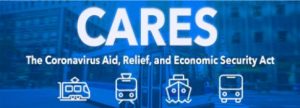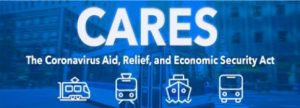U.S. Department of Treasury Expands Income Tax Filing and Payment Relief
In an official pronouncement released Thursday, April 9, the U.S. Department of Treasury expanded on the income tax filing extension and payment relief efforts in response to the current COVID-19 situation. Effectively, any “income” tax filing or payment that would normally be due during the months of April through June of 2020 has now been automatically extended until July 15, 2020. As a supplement to the prior income tax filing and payment extensions granted, this new announcement delays the need to remit any quarterly estimated tax payments until July 15th without incurring any penalty or interest charges. As a result, any business or individual with 2020 quarterly estimated tax payments needs is able to delay both the Quarter 1 and Quarter 2 payments (normally due April 15th and June 15th, respectively) until July 15, 2020. Also extended are any fiscal year-end income tax return filings (and corresponding tax payments) for businesses (corporate, LLC, partnerships or trusts), gift and estate tax filings, nonprofit organization income tax filings that would have been due in April, May, or June of 2020. Note that these enhanced extension relief rules do not pertain to Employment Tax Reporting and Payments (including all payroll-related tax returns and deposit requirements). Finally, as reaffirmation of the recommendations we have previously provided for any business, organization or individual taxpayers that will require additional time to file their respective 2020 income tax returns, the standard extended due dates of September 15 and October 15 may still be requested via filing of the applicable extension form prior to July 15, 2020.
We trust you will find the highlights we have provided on this new pronouncement helpful, but should you have further questions please contact us.



 We have compiled the following useful and concise information for your reference as you consider the various planning opportunities available to address the impact of the COVID-19 situation on nonprofit organizations. After studying the recently enacted law and interacting with other professionals, by parsing through the voluminous CARES Act, Families First Coronavirus Response Act (“FFCRA”) and relevant peripheral materials, the following includes the highlights of the relevant relief available to you via the government stimulus packages:
We have compiled the following useful and concise information for your reference as you consider the various planning opportunities available to address the impact of the COVID-19 situation on nonprofit organizations. After studying the recently enacted law and interacting with other professionals, by parsing through the voluminous CARES Act, Families First Coronavirus Response Act (“FFCRA”) and relevant peripheral materials, the following includes the highlights of the relevant relief available to you via the government stimulus packages:
 Small businesses looking to get some relief from the Payroll Protection Program may run into a snag or two. Because this stimulus package was passed so quickly, the banks are not necessarily prepared to handle the loans like the media initially described. This
Small businesses looking to get some relief from the Payroll Protection Program may run into a snag or two. Because this stimulus package was passed so quickly, the banks are not necessarily prepared to handle the loans like the media initially described. This  FOR IMMEDIATE RELEASE Contact: Joseph Kyzer<
FOR IMMEDIATE RELEASE Contact: Joseph Kyzer<